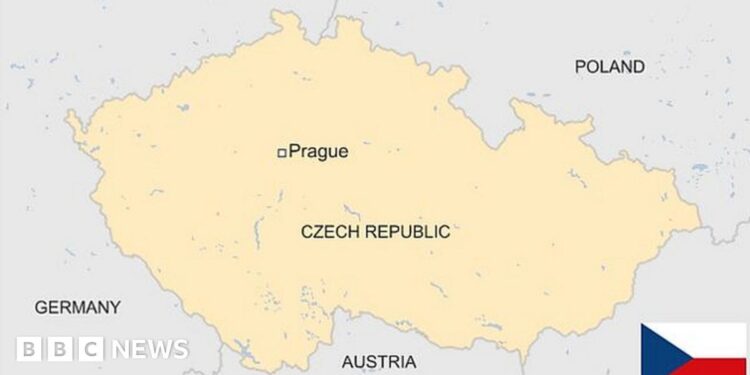The Czech Republic is witnessing a significant realignment in its political landscape as far-right parties move to consolidate power through a newly formed alliance. This development marks a critical juncture ahead of upcoming elections, raising questions about the future direction of the country’s policies and its position within the European Union. Analysts and observers are closely monitoring the coalition’s emergence, which reflects broader trends of nationalist and populist movements gaining traction across Central Europe.
Czech Republic Faces Emerging Far-Right Political Alliance Amid Rising Nationalism
Recent political developments in the Czech Republic signal a significant shift as far-right parties seek to forge a strategic alliance. Fueled by a surge in nationalist sentiment and public disillusionment with traditional parties, these groups aim to consolidate their influence ahead of upcoming elections. Political analysts warn that the emerging coalition could reshape the country’s policy landscape, particularly on immigration, EU relations, and social issues.
Key elements driving this alliance include:
- Unified messaging: A shared platform emphasizing sovereignty, anti-globalism, and cultural preservation.
- Electoral strategy: Coordinated campaigns to maximize parliamentary representation and local governance control.
- Grassroots mobilization: Increased engagement with nationalist organizations and protest movements.
The consequences of this alliance will be closely monitored by both domestic stakeholders and international observers, who are concerned about its potential to disrupt regional stability and impact Czech Republic’s role within the European Union.
Implications for Democratic Stability and Regional Security in Central Europe
The emergence of a far-right alliance in the Czech Republic signals a potential recalibration of the country’s democratic resilience and its role in Central Europe’s geopolitical landscape. This shift raises concerns about the erosion of liberal democratic norms, as populist rhetoric increasingly challenges the independence of judicial and media institutions. Political polarization could deepen, potentially destabilizing established party systems and complicating governance. Moreover, the rise of nationalist agendas may fuel social fragmentation, undermining efforts toward inclusive policymaking and minority protections.
On a regional level, this political realignment may disrupt existing security frameworks that Central European nations rely on to counter external threats such as Russian influence and migration pressures. The far-right’s often Eurosceptic stance could hamper Prague’s cooperation within the European Union and NATO, affecting collective security initiatives. Key implications include:
- Weakened regional alliances: Reduced trust and collaboration with neighboring democracies.
- Shift in foreign policy priorities: Increased focus on nationalist interests over multilateral diplomacy.
- Heightened societal tensions: Possible rise in xenophobic incidents complicating internal stability.
| Aspect | Potential Impact | Timeframe |
|---|---|---|
| Democratic Institutions | Increased political polarization | Short to Medium Term |
| EU Relations | Possible Euroscepticism and decreased cooperation | Medium Term |
| Security Frameworks | Lowered collective defense effectiveness | Long Term |
Strategies for Countering Extremism and Preserving Inclusive Governance
To effectively address the rise of extremist factions within the Czech political landscape, it is essential to implement multi-faceted approaches that not only counter radical narratives but also reinforce democratic tenets. Collaborative efforts between civil society, law enforcement, and governmental bodies must focus on early detection and prevention programs targeting vulnerable populations, especially youth susceptible to far-right propaganda. Initiatives promoting media literacy and fact-based education can serve as powerful tools against misinformation and hate speech, which often fuel extremist agendas.
Moreover, fostering inclusive governance requires policies that enhance social cohesion and representation for diverse communities. The following measures are crucial:
- Community engagement platforms: Encouraging dialogue between different ethnic and political groups to build mutual understanding.
- Strengthened anti-discrimination laws: Ensuring legislative frameworks effectively address hate crimes and political intimidation.
- Transparent political financing: Limiting the influence of radical groups through strict regulation of campaign resources.
| Strategy | Key Actions | Expected Outcome |
|---|---|---|
| Education & Awareness | Workshops, Media Literacy Campaigns | Reduced susceptibility to extremist rhetoric |
| Community Dialogue | Public Forums, Interfaith Meetings | Increased social cohesion |
| Policy Enforcement | Hate Crime Legislation, Campaign Finance Oversight | Deterrence of extremist activities |
Concluding Remarks
As the Czech Republic witnesses the emergence of a far-right alliance, the nation’s political landscape is poised for significant transformation. Analysts and citizens alike will be closely monitoring how this shift influences policy decisions, public discourse, and the country’s position within the broader European context. With stakes high and debates intensifying, the unfolding developments underscore the dynamic and evolving nature of Czech politics in the years ahead.














![Poland and France push ahead with defense pact after Paris talks [VIDEO] – TVP World](https://europ.info/wp-content/uploads/2026/01/3036754-poland-and-france-push-ahead-with-defense-pact-after-paris-talks-video-tvp-world-120x86.jpg)

